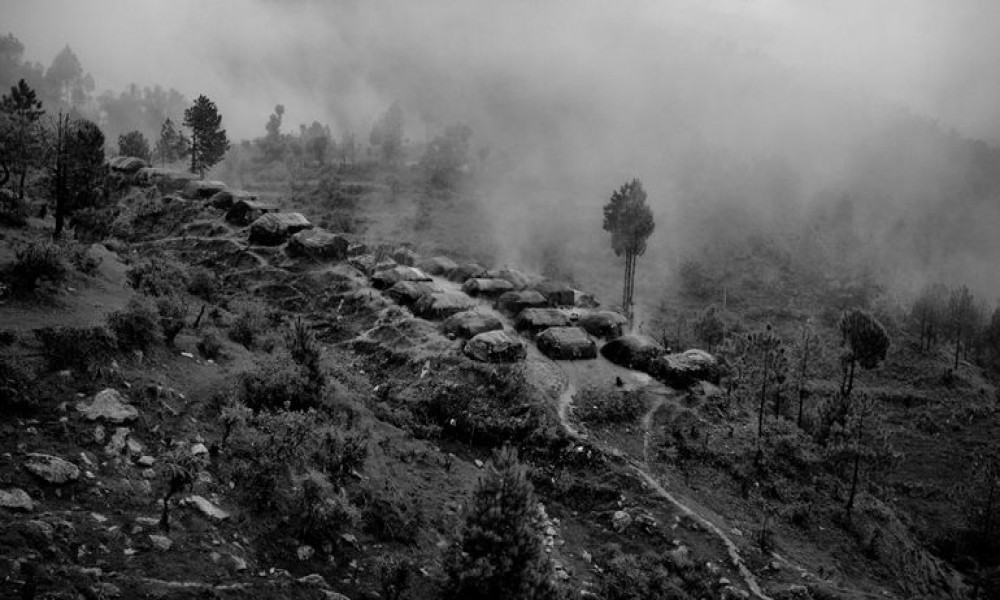The government is taking stringent measures to contain the spread of the Covid-19 disease in Nepal. An extended nationwide lockdown is in effect until 8 April, all commercial international flights have been suspended until 15 April, and the India border has been sealed off for an indefinite period.
In order to stop local transmission of coronavirus, social distancing is being promoted across the country. Most people are working from home, and mass gatherings have been prohibited. However, all these precautionary measures mean nothing for the Rautes -- Nepal's last surviving nomadic tribe.
Most people are working from home, and mass gatherings have been prohibited. However, all these precautionary measures mean nothing for the Rautes -- Nepal's last surviving nomadic tribe.
In Surkhet, most people are staying indoors. If they go out, they put on masks. They avoid gathering. But the Rautes are roaming around nonchalantly, as though they are immune to the deadly disease that has already killed more than 37,000 people worldwide so far.
A group of Raute people have been temporarily living in Bheri Ganga municipality-2 of Surkhet district. The government has not carried out any awareness activities targeting the Rautes. Due to lack of awareness and precautionary measures, the Raute people are highly vulnerable to the Covid-19 infection. Kamal KC, a local resident of Surkhet says: "We are taking precautionary measures, but the Rautes are not."
People living close by the Raute settlement have asked the local administration to prevent the semi-nomadic tribe from roaming around. KC says: "They are not aware of the danger of Covid-19. And they cannot stay in a lockdown situation either. So the government must provide support for them so they do not wander around."
They are not aware of the danger of Covid-19. And they cannot stay in a lockdown situation either. So the government must provide support for them so they do not wander around.
Satya Devi Khadka of Raute Pratisthan says no government office has reached out to the Raute community amidst fears over the Covid-19 disease. As many as 15 Raute people are living in the same small hut. She says: "They all live on the floor. If one gets infected, everyone will."
According to her, representatives of government and non-government offices would contact the Raute indigenous peoples almost every single day. However, after fear of coronavirus infection began to cripple the country, no one has reached out to them. She says: "They need awareness about the disease. But more than that, they need support to survive without going around."
In the current fiscal year, various government and non-government offices have spent an estimated accumulative budget of Rs 100 million to 'support' the Raute people. But no one has taught them about how they can stay safe from the Covid-19 pandemic, according to their community leader Main Bahadur Shahi.
Shahi says: "We cannot stay idle. We need to move around to manage food."
Based on a news report published in Kantipur daily, 27 March.









